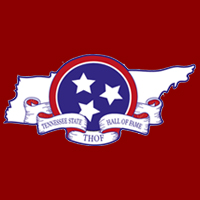Country
From its earliest beginnings in the Bristol recording sessions of 1927, country music in Tennessee has grown to become a world-renowned industry based in Nashville. With roots in Appalachian folk ballads and fiddle tunes, it incorporated other musical styles as well, including western music and blues. While originally called “hillbilly” and appealing mainly to the rural Southern white working class, its popularity has continued to grow as it has evolved to reflect the tastes of an increasingly wider audience who still identify with its core themes and values.
By Joseph M Van Dyke, Tennessee State University
Tennessee is known worldwide as the home of country music. This uniquely American music has many of its roots in Tennessee and has grown to be an international industry centered in Nashville.
Country music has its origins in Appalachian folk ballads and fiddle tunes, along with other influences such as blues, gospel hymns, cowboy work songs, and other popular forms. In its early days, country music was known as “hillbilly” music and primarily reflected the culture and sensibilities of the rural Southern white working class. Although the music has evolved over the years by including stylistic elements from other forms of popular music, many of its basic themes remain, such as a celebration of the rural lifestyle, the struggles and triumphs of the common man, love, and patriotism.
Some of the earliest recordings of country music were the famous Bristol sessions of 1927. The Carter Family and Jimmie Rodgers made their first recordings there and their commercial success made country music a major genre of popular music. In 1925, Nashville’s WSM radio began broadcasting the Grand Ole Opry which furthered the music’s appeal. Among the early performers on the Opry was David (Uncle Dave) Macon of Warren County. Macon was a singer, comedian, and banjo player and is considered the first Tennessee musician to garner national fame. His importance to country music lies in the fact that he was a pivotal figure linking the tradition of old-time rural folk music to the emerging modern sounds of the twentieth century.
In the 1930s, radio became the primary avenue for the dissemination of country music. In addition to Nashville’s WSM, other important Tennessee radio stations were WDOD in Chattanooga, WOAN in Lawrenceburg, WMC in Memphis, WOPI in Bristol, and WNOX in Knoxville. These stations often featured live performances by local talent on their programs and would sometimes launch successful musical careers.
Among the most famous of these artists was Roy Acuff of Maynardville. He became popular on Knoxville radio and then joined the Grand Ole Opry in 1938 where he became its biggest star and was known as “The King of Country Music.” Acuff was also one of the first artists to own a publishing company and contributed to the trend of artists managing their own business affairs. Kitty Wells (born Muriel Deason) of Nashville recorded “It Wasn’t God Who Made Honky-Tonk Angels” and paved the way for other women in country music.
Chester county’s Eddy Arnold, “The Tennessee Ploughboy,” rose to fame on the Opry in the 1940s but later developed a more pop oriented sound. His crooning style became popular and was followed by other singers such as Tennessee Ernie Ford of Bristol. Ford based his career out of California and extended country music’s reach with one of the biggest hits of all time, “Sixteen Tons.”
Two of the most important figures in the development of Nashville’s recording industry were Chet Atkins of Lutrell and Owen Bradley of Westmoreland. Atkins began his career at WNOX in Knoxville then came to Nashville where his guitar playing prowess got him work in the burgeoning recording scene. He soon began producing records for RCA and was a primary creator along with Bradley of what became known as the “Nashville Sound.” Atkins later led RCA Nashville and signed and produced many acts such as Willie Nelson, Waylon Jennings, Connie Smith, Bobby Bare, Dolly Parton, Jerry Reed, and Charley Pride. Owen Bradley was a musical director for WSM and later built a recording studio called the Quonset Hut in the area of Nashville which became known as Music Row. Bradley began producing recordings for Decca Records and eventually led the Nashville division, producing such acts as Patsy Cline, Loretta Lynn, Brenda Lee, and Conway Twitty.
In the 1960s and beyond as Nashville became a national recording center and the home of country music, many native Tennesseans were important to its growth. Among those were Dolly Parton of Sevierville, Dottie West of McMinnville, Carl Smith of Maynardville, George Morgan of Waverly, and bluegrass artist Jimmy Martin of Sneedville.
As the country music industry has grown and developed in the recent decades, it remains based in Tennessee. The state has continued to produce stars such as Kenny Chesney of Knoxville and also many other major figures in the industry. Tennessee has given birth to the careers of artists such as Alan Jackson, Randy Travis, Garth Brooks, Carrie Underwood, and Taylor Swift. These and the countless other persons in the country music business who might not have been born here have decided to live and work in the home of country music, a vitally important element in the social and economic fabric of Tennessee.
References:Wolfe, Charles K. “Music.” In The Tennessee Encyclopedia of History and Culture, Carroll Van West, Ed.-in-Chief. Nashville: Tennessee Historical Society, Rutledge Hill Press. 1998.
Malone, Bill C. Country Music U.S.A. Austin: University of Texas Press. 2002.
Neal, Jocelyn. “Country Music.” Grove Music Online. Edited by Deane Root. Accessed 10 December, 2017.
http://www.oxfordmusiconline.com.
